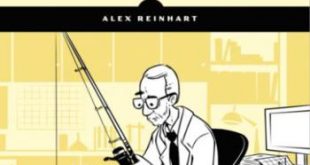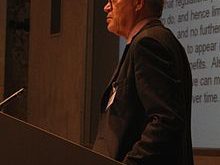Why p-values cannot be taken at face value A researcher is interested in differences between Democrats and Republicans in how they perform in a short mathematics test when it is expressed in two different contexts, either involving health care or the military. The research hypothesis is that context matters, and one would expect Democrats to do better in the health- care context and Republicans in the military context … At this point there is a huge...
Read More »Mainstream economists dissing people that want to rethink economics
Mainstream economists dissing people that want to rethink economics There’s a lot of commenting on the blog now, after yours truly put up a post where Cambridge economist Pontus Rendahl in an interview compared heterodox economics to ‘creationism’ and ‘alternative medicine,’ and totally dissed students that want to see the economics curriculum moving in a more pluralist direction. Sad to say, Rendahl is not the only mainstream economist having monumental...
Read More »A Theory of Economic Policy Lock-in and Lock-out via Hysterisis: Rethinking Economists’ Approach to Economic Policy
This paper explores lock-in and lock-out via economic policy. It argues policy decisions may near-irrevocably change the economy’s structure, thereby changing its performance. That causes changed economic outcomes concerning distribution of wealth, income and power, which in turn induces locked-in changes in political outcomes. That is a different way of thinking about policy compared to [...]
Read More »On the proper use of mathematics in economics
On the proper use of mathematics in economics One must, of course, beware of expecting from this method more than it can give. Out of the crucible of calculation comes not an atom more truth than was put in. The assumptions being hypothetical, the results obviously cannot claim more than a vey limited validity. The mathematical expression ought to facilitate the argument, clarify the results, and so guard against possible faults of reasoning — that is all....
Read More »Rational choice theory …
Rational choice theory … In economics it is assumed that people make rational choices
Read More »Sweden’s growing housing bubble
Sweden’s growing housing bubble House prices are increasing fast in EU. And more so in Sweden than in any other member state, as shown in the Eurostat graph below, showing percentage increase in annually deflated house price index by member state 2015: Sweden’s house price boom started in mid-1990s, and looking at the development of real house prices during the last three decades there are reasons to be deeply worried. The indebtedness of the Swedish...
Read More »Microfoundational angels
Amongst the several problems/disadvantages of this current consensus is that, in order to make a rational expectations, micro-founded model mathematically and analytically tractable it has been necessary in general to impose some (absurdly) simplifying assumptions, notably the existence of representative agents, who never default.This latter (nonsensical) assumption goes under the jargon term as the transversality condition. This makes all agents perfectly creditworthy. Over...
Read More »Ricardian equivalence — hopelessly unrealistic
Ricardian equivalence — hopelessly unrealistic According to the Ricardian equivalence hypothesis the public sector basically finances its expenditures through taxes or by issuing bonds, and bonds must sooner or later be repaid by raising taxes in the future. If the public sector runs extra spending through deficits, taxpayers will according to the hypothesis anticipate that they will have pay higher taxes in future — and therefore increase their savings and...
Read More »Loanable funds theory is inconsistent with data
Loanable funds theory is inconsistent with data Loanable funds doctrine dates back to the early nineteenth century and was forcefully restated by the Swedish economist Knut Wicksell around the turn of the twentieth (with implications for inflation not pursued here). It was repudiated in 1936 by John Maynard Keynes in his General Theory. Before that he was merely a leading post-Wicksellian rather than the greatest economist of his and later times. Like...
Read More »Paul Romer — favourite candidate for ‘Nobel prize’ 2016
Paul Romer — favourite candidate for ‘Nobel prize’ 2016 Among Swedish economists, Paul Romer is the favourite candidate for receiving the ‘Nobel Prize’ in economics 2016. Let’s hope the prediction turns out right this time. The ‘Nobel prize’ in economics has almost exclusively gone to mainstream economists, and most often to Chicago economists. So how refreshing it would be if for once we would have a winner who has been brave enough to openly criticize the...
Read More » Heterodox
Heterodox









